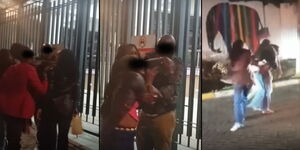A Kenyan citizen living in the US escaped a jail term after the court in Jersey dropped bigamy charges against him.
According to the Royal Court in the US on Wednesday, January 5, the prosecution failed to provide an expert to substantiate his marriage to another secret lover in Kenya.
The court also established that Kenyan laws allow polygamy, which informed his decision to marry a second wife in the US.
He was accused of bigamy- the criminal offence of marrying a person while being married to another- and knowingly provided false information for the purposes of intended marriage.
According to marriage laws in the US, bigamy is considered a criminal offence which attracts a fine exceeding Ksh100,000 and over 10 years in jail, depending on different states.
During the hearing, the Royal Court heard that the Kenyan man married a Jersey Woman and convinced her that he was single in July 2015.
But a Kenyan woman surfaced claiming that they got married in March 2008, and they were still wife and husband at the time of his marriage on the Island.
To prove his marriage to a Kenyan woman, a civil servant from a marriage registry in Kenya produced a document certifying their union.
During the hearing, the court ruled out the evidence presented, arguing that the civil servant was not a professional legal expert.
The court also heard that some Kenyan marriage laws, allow polygamous unions.
He also defended himself by arguing that he entered into a ‘customary law union’, an arrangement under Kenyan law which would guarantee him access to their son.
In his written judgment, Commissioner Sir William Bailhache stated, "to establish its case, the Crown must prove that it was a monogamous first marriage, and expert evidence will be needed."
He added, "In its absence, there would be a submission of no case to answer because there would be no evidence fit to put before the jury on that important prerequisite for establishing guilt."












